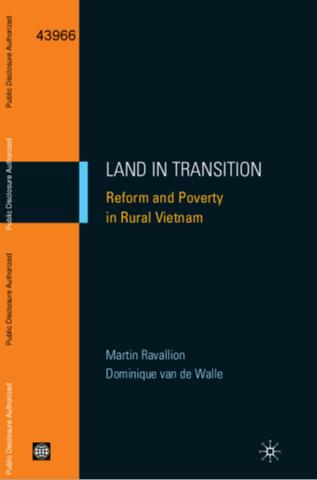Land Law Reform : Achieving Development Policy Objectives
This book examines issues at the
forefront of the debate on land law reform, pays particular
attention to how reform options affect the poor and
disadvantaged, and recommends strategies for alleviating
poverty more effectively through land law reform. It reviews
the role of the World Bank in land law reform, examining
issues of process as well as substance. It also identifies
key challenges and directions, and stresses the need to



